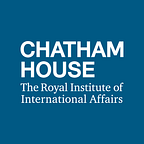Five Things You May Have Missed in the US and Americas This Week
Canada and several prominent Latin American countries leave the door open for military intervention in Venezuela, North Korea’s denuclearization efforts fall short of US demands and the US plans to further reduce immigration. Here are five developments that you may have missed in the US and the Americas this week.
(1) Canada rejects signing pledge to oppose any military intervention in Venezuela.
Canada, Colombia and Guyana refused to sign a joint statement in step with other Latin American countries which would rule out military intervention to resolve the deepening crisis in Venezuela. Canadian officials maintain that they continue to oppose military action and that the refusal to sign the joint statement was due to procedural concerns rather than a shift in policy.
The latest disagreement between countries of the Lima Group — a multilateral body of 17 countries created to peacefully resolve the ongoing Venezuela crisis — highlights deepening rifts between countries in the region. As tensions on the border between Colombia and Venezuela continue to rise amidst the deepening economic and migration crisis, Colombia has increasingly become more open in its support for military action. Meanwhile Peru continues to lead in advocating for a peaceful resolution.
(2) North Korea announces phased denuclearization plan with the South absent US engagement.
On Wednesday, North Korean leader Kim Jong-Un told South Korean president Moon Jae-In that his country will commit to taking steps towards denuclearization — including the dismantling of key nuclear weapons sites. However, Kim Jong-Un made no commitment to surrendering North Korea’s current arsenal of nuclear warheads and ballistic missiles — which does not meet the US demand for complete denuclearization within the next year. Despite this, President Trump welcomed North Korea’s announcement as a positive step.
This latest development is a continuation of North Korea’s repeated attempts to maximize its leverage in negotiations with the US by emphasising its willingness and ability to deal directly with South Korea and thereby minimize US influence on the conditions of denuclearization.
(3) Trump administration plans to further reduce refugee immigration into the US.
The Trump administration announced on Monday that it will cap the number of refugees entering the US to 30,000 for 2019 — a 30 per cent reduction from the cap of refugees allowed in 2018. US Secretary of State Mike Pompeo cited security concerns and the backlog of the volume of asylum-seekers currently being processed in the US as reasons for the reduction while critics have argued that this decision will be detrimental to America’s image abroad.
The Trump administration continues its hard-line stance on immigration issues with its central argument that there needs to be a more robust vetting process for immigrants entering the US to alleviate security concerns. This announcement also comes as the US midterm elections edge closer while immigration issues remain divisive among American voters.
(4) Argentinian senator and ex-president Cristina Fernández charged in bribery scandal.
The former president of Argentina and current senator for Buenos Aires, Cristina Fernández, has been charged with bribery which allegedly occurred while she was president between 2007 and 2015. The indictment charges that Fernández accepted cash bribes from construction companies in exchange for public works projects, and that she was involved in a network of corruption established by her late husband and predecessor, the former Argentinian President Néstor Kirchner, who died in 2010.
This is the first such major bribery charge against a former president of Argentina. More than a dozen business leaders and officials connected to Fernández’s past administration have been arrested against the backdrop of a crippled Argentinian economy. Despite this, Fernández continues to have popular support in the country and is seeking to run for the presidency again next year.
(5) US Senate passes bipartisan bill to address the worsening opioid crisis.
The US Senate passed sweeping legislation to fund provisions that target the illegal opioid trade in the US, treatment options for patients suffering from addiction and the development of non-addictive painkillers. The bill passed 99–1 and could become law by the end of the year pending approval from the US House of Representatives.
The opioid crisis in the US continues to rise, with overdoses from drugs cut with fentanyl being one of the leading causes of death among users. The purchase of synthetic drugs on the dark web has also contributed to the rise in drug use as traffickers utilize the US Postal Service — which does not currently require electronic tracking for packages entering the US. According to data from the Center for Disease Control and Prevention, drug overdoses in the US have risen from more than 63,000 in 2016 to 72,000 in 2017. If passed into law, this bill could be a significant step towards combating the current crisis.
